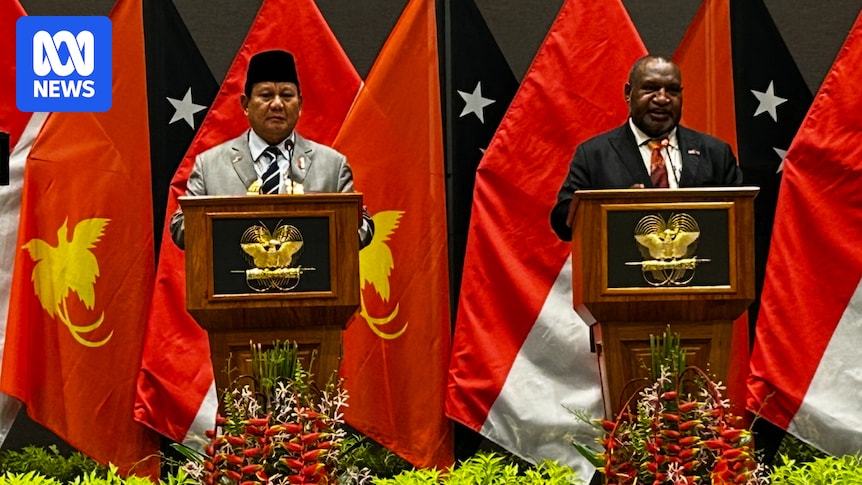
The Indonesian government has reacted to the recent defence treaty signed between Australia and Papua New Guinea (PNG), emphasizing the need to “uphold the sovereignty and independence” of Indonesia. This response follows the signing of the landmark agreement in Canberra on Monday, which aims to bolster defence cooperation between the two nations.
Indonesia’s Foreign Ministry spokesperson, Vahd Nabyl, conveyed to the ABC that the country is paying “close attention” to the developments. “Indonesia respects every country’s right to enhance its defence systems,” Nabyl stated. “And believes that any such cooperation should contribute to peace and stability in the region, while avoiding the escalation of geopolitical rivalry.”
Implications of the Pukpuk Treaty
The historic Pukpuk Treaty marks Australia’s first new alliance in over 70 years, with both countries pledging to “meet the common danger, in accordance with [each other’s] constitutional process.” This has raised questions about the ongoing conflict and tension in West Papua, a region that has seen intensified struggles for independence from Indonesia.
In recent years, the Indonesia-PNG border has become a flashpoint, with many West Papuans seeking refuge in PNG as Indonesia increases its military presence to suppress the separatist movement. Nabyl reiterated Indonesia’s commitment to “strong cooperation, communication, and coordination” with PNG to maintain security along the border, while expecting Australia and PNG to respect Indonesia’s sovereignty.
Border Concerns and Regional Stability
Natalie Sambhi, a military expert from the think tank Verve Research, noted that both Indonesian and PNG governments are likely to work towards minimizing tensions caused by West Papuan independence fighters crossing the border. “Short of a gross human rights violation, which could trigger a wellspring of anti-Indonesian sentiment among border communities, the status quo will prevail,” she explained.
The new defence agreement commits both countries to respond to “common danger” in the event of an armed attack. However, Sambhi highlighted the potential for differing interpretations. “Future scenarios could arise in which Australia might be compelled to side with PNG,” she said, stressing the importance of weighing such decisions against the longstanding defence ties and trust between Australia and Indonesia.
Speaking to 7.30 earlier this week, PNG Prime Minister James Marape clarified that the Pukpuk treaty does not obligate Australia to assist PNG in conflicts on the Indonesian border. He emphasized a “healthy dialogue with Indonesia” and expressed confidence that the treaty would not offend Jakarta, despite not discussing it with Indonesia beforehand.
Indonesia’s Diplomatic Stance
When questioned about the possibility of Indonesia pursuing similar agreements with other major powers, Nabyl reiterated Indonesia’s “free and active” foreign policy. “This means we avoid entering into agreements that resemble military or defence alliances with any country,” he stated.
Dr. Sambhi pointed out that while Indonesia has strengthened ties with China, especially in infrastructure and trade, it continues to rely on “traditional partners” like the United States and Australia for military cooperation. “Even though the country has appeared to draw closer to China, Indonesia is also cultivating relations with the UK, Russia, France, India, Canada, the Gulf States, and more,” she added.
“We believe PNG and Australia are also aware of this responsibility,” Nabyl said, highlighting the shared duty to maintain regional security. “Indonesia will continue to maintain dialogue with both countries on matters of mutual interest … including in the implementation of defence policies that may affect the region.”
Looking Ahead
Dr. Sambhi suggested that the Australia-PNG treaty could ultimately benefit Indonesia by ensuring a more capable neighbor equipped to address both traditional and emerging hybrid threats. This includes expanded collaboration in areas such as maritime security, humanitarian assistance, and disaster relief.
The announcement comes as Indonesia navigates its strategic position in a region marked by shifting alliances and growing geopolitical tensions. As the situation unfolds, the focus will remain on how these alliances impact regional stability and the delicate balance of power in Southeast Asia.





